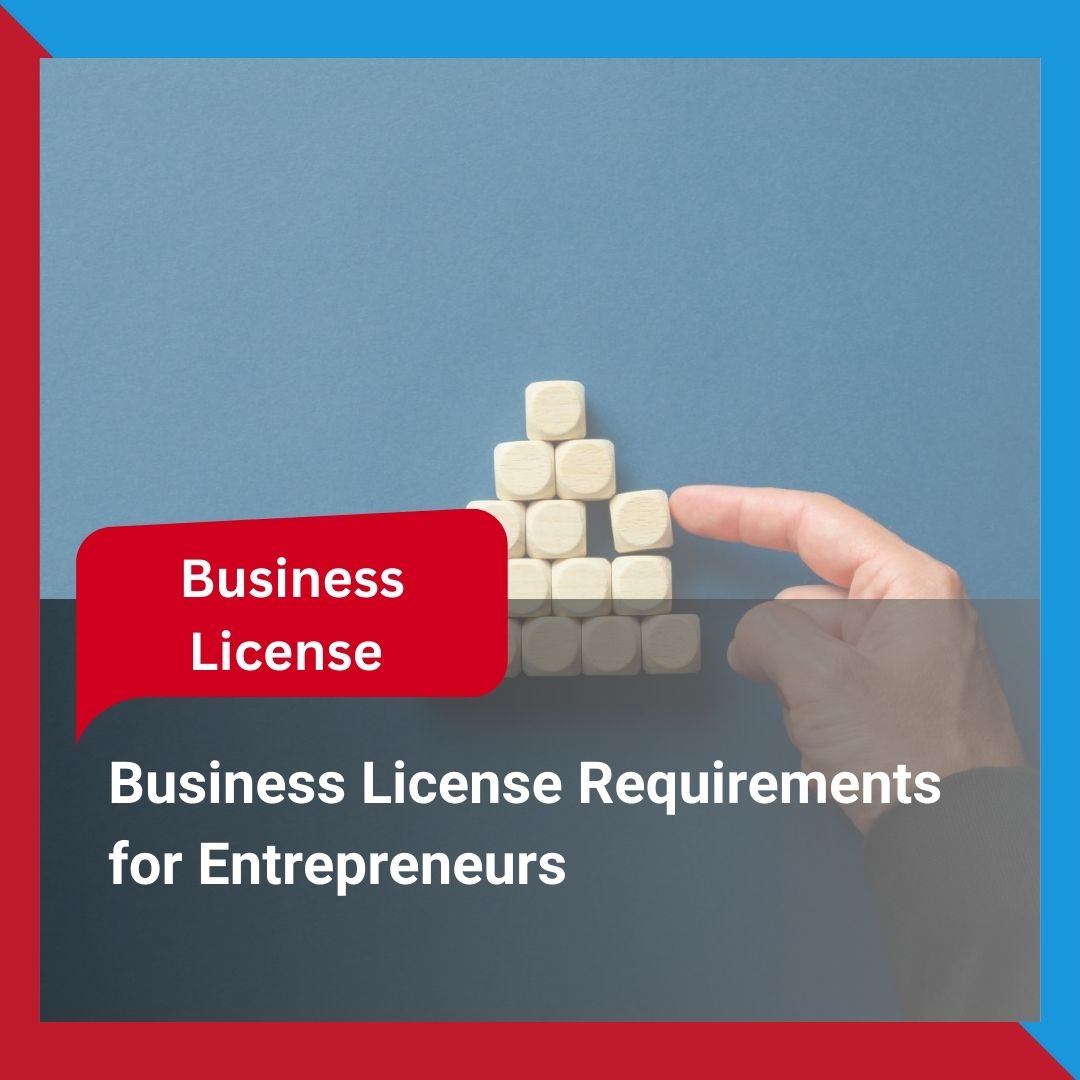Index:
- Introduction to Business License Requirements
- Importance of Business Licenses
- Key Steps in Obtaining Business Licenses
- Common Mistakes to Avoid
- Conclusion: Navigating Business License Requirements with Confidence
Introduction to Business License Requirements:
Entering the world of entrepreneurship is an exhilarating journey filled with opportunities and challenges. As you embark on this path, one crucial aspect to consider is obtaining the necessary business licenses.
In this comprehensive guide, we’ll explore the importance of business licenses, the key steps in obtaining them, and common mistakes to avoid, empowering you to navigate business license requirements with confidence.
Importance of Business Licenses:
Before diving into the intricacies of obtaining business licenses, let’s first understand their significance. Business licenses serve as official permits issued by government authorities, allowing individuals or organizations to conduct specific business activities legally within a particular jurisdiction.
These licenses ensure compliance with local regulations, protect public safety, and maintain the integrity of the marketplace.
Key Steps in Obtaining Business Licenses:
Now that we recognize the importance of business licenses, let’s explore the key steps involved in obtaining them:
1. Research License Requirements:
- Begin by researching the specific license requirements for your business type and location. Different industries and jurisdictions may have unique licensing requirements, so it’s essential to understand the regulations that apply to your business.
2. Identify Required Licenses:
- Determine which licenses are necessary for your business operations. Common types of business licenses include general business licenses, professional licenses, health permits, zoning permits, and tax registrations. Identify the licenses relevant to your industry and activities.
3. Gather Necessary Documentation:
- Prepare the required documentations for each license application. This may include proof of business ownership, identification documents, business plans, financial statements, certificates of insurance, operating agreement and any other documents specified by the licensing authority.
4. Complete Application Forms:
- Fill out the necessary application forms accurately and completely. Provide all requested information and ensure that your answers are truthful and consistent. Incomplete or inaccurate applications may result in delays or rejection of your license application.
5. Submit Applications and Fees:
- Submit your completed license applications along with any required fees to the appropriate licensing authority. Pay close attention to application deadlines and submission requirements to avoid delays in processing.
Common Mistakes to Avoid:
While obtaining business licenses may seem straightforward, several common mistakes can hinder your efforts. Here are some pitfalls to avoid:
1. Ignoring License Requirements:
- Failure to research and comply with license requirements can result in fines, penalties, or even legal consequences. Take the time to understand the licensing regulations relevant to your business to ensure compliance.
2. Delaying License Applications:
- Don’t wait until the last minute to apply for licenses. Start the application process early to allow for sufficient time for processing and approval. Delaying license applications can disrupt your business operations and lead to unnecessary stress.
3. Neglecting Renewal Deadlines:
- Keep track of license renewal deadlines and ensure that your licenses remain current and valid. Failure to renew licenses on time may result in suspension of business activities or additional fees for late renewal.
Faq
What types of business licenses are there?
There are many different types of business licenses, and the specific licenses you need will vary depending on your business type, location, and industry. Some common types of business licenses include general business licenses, professional licenses, health permits, zoning permits, and sales tax licenses.
How do I find out what licenses I need for my business?
The best way to find out what licenses you need for your business is to contact your local government office or chamber of commerce. They can provide you with information on the specific licenses required for your business type and location. You can also search online for your state’s business license requirements.
What are the common mistakes people make when applying for business licenses?
One of the most common mistakes people make when applying for business licenses is failing to research the specific requirements for their business type and location. Another common mistake is applying for the wrong type of license or neglecting to renew licenses on time.
How can I avoid making mistakes when applying for business licenses?
The best way to avoid making mistakes when applying for business licenses is to do your research and be thorough in your application process. Make sure you understand the specific requirements for your business type and location, and submit all required documentation accurately and on time.
Conclusion: Navigating Business License Requirements with Confidence.
In conclusion, obtaining the business licenses is a critical step in starting and operating a successful business like sole proprietorships, partnerships, and corporations.
By understanding the importance of business licenses, following the key steps in obtaining them, and avoiding common mistakes, you can navigate business license requirements with confidence and ensure legal compliance.
Take the time to research and understand the licensing regulations applicable to your business, Create an business registeration check list and embark on your entrepreneurial journey with clarity and peace of mind.


2 thoughts on “Business License Requirements for Entrepreneurs”